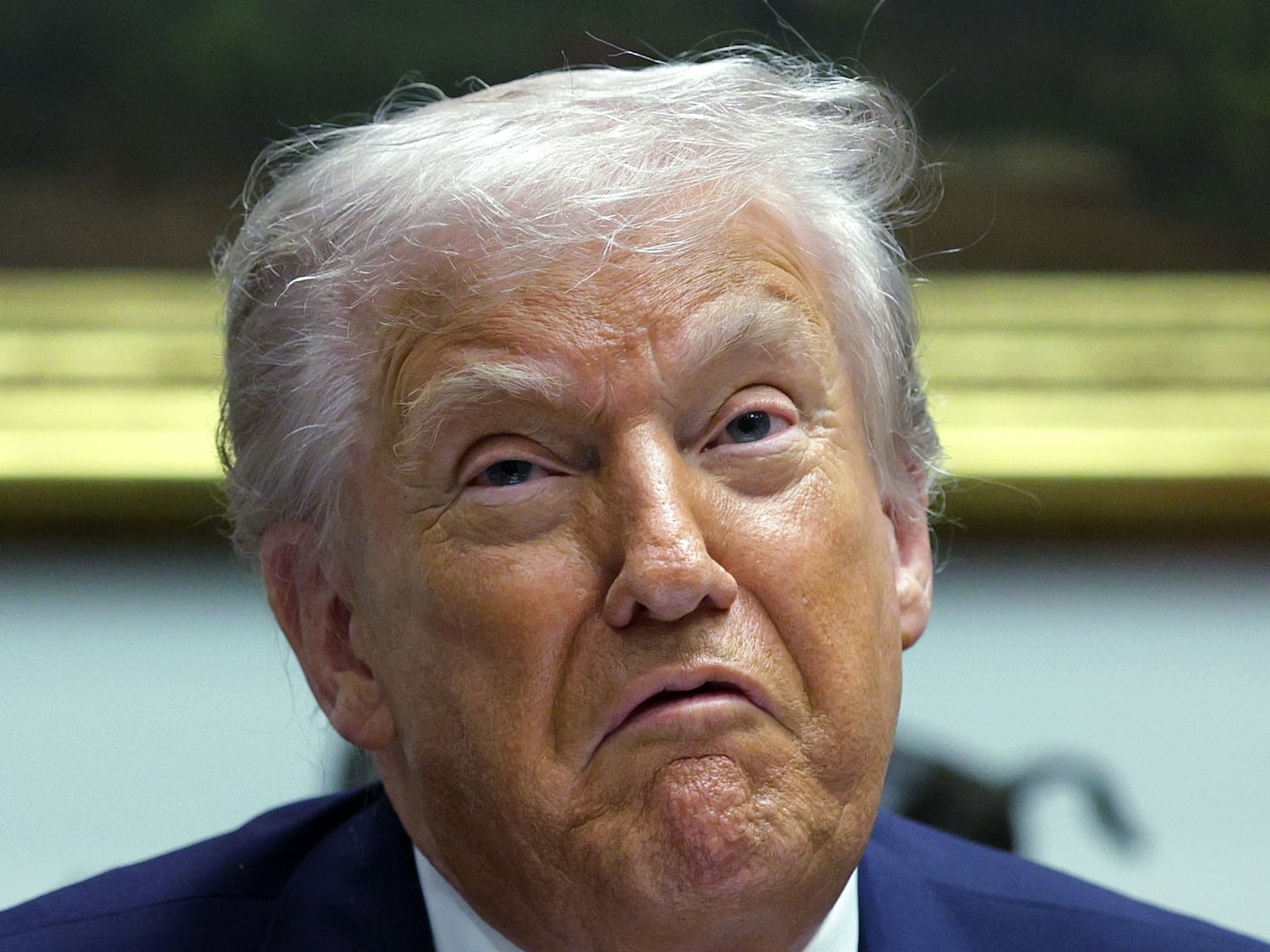It’s official: there are no winners in Warren Buffett’s one-man NCAA lottery. Faster than you can say Duke, the avuncular billionaire is off the hook to pay out a cool billion dollars to whomever filled out a perfect bracket.
The joke is on us—but like many Americans, USA Today’s Nina Mandell misses the punchline: Buffett even insured his wager, she notes, avoiding any need to put his own money where his mouth is. Even “more importantly, he captured a bit of what March Madness was about: the ability to think anything can happen.”
Wake up and smell the system, my friends. The myth that anything can happen—especially when it comes to getting rich quick—is as toxic and deranged a worldview as the Tinder-ready motto that everything happens for a reason.
The lesson of Buffett Madness counsels against the same fatuous insanity that fuels America’s exploitative and corrupting lotteries: if you’re not already fantastically wealthy, the road to a massive fortune runs through an extraordinary combination of talent, discipline, and competitive effort—not luck, not a lark, and certainly not the goodwill of the wizards behind the curtain of the American economy.
Sadly, there’s something all too consistent in Buffett’s feel-good fantasy that left everyone but himself out in the cold. This is a man who made $10 billion off of the financial crisis; thanks to his massive net worth, he was able to invest at the drop of a hat, rather than scrambling, like so many others, to scrape together some kind of savings.
As is now typical of our super-elite, Buffett acts as if he’s simply just another one of “the rich,” yet pushes an economic policy built to ensure the vast majority of Americans can never penetrate the upper class.
Leave aside the ruling class’ fixation on upward mobility for those at the bottom, which conveniently excludes the question of how anyone can ever rise up to take their place. Hark back to the Buffett Rule, another prime slice of collective madness orchestrated by the power elite.
On the surface, it seems pretty reasonable to ensure, as the president argued, that million-dollar-a-year earners pay as great a share of income taxes as middle-class people. But that would do nothing to address the huge difference between the tax rates paid by high earners and super-high-net-worth individuals, as Roberton Williams, a two-decade veteran of the Congressional Budget Office, ++explains [http://www.factcheck.org/2012/04/obama-and-the-buffett-rule/]++. That difference, in short, is a simple one: unlike many of the merely rich, the super-elite is typically very well insulated against policies and events that would otherwise work to dislodge them from their economic and social class.
So what’s the point of tax gambits like the Buffett Rule? In the hands of the super-elite, its greatest value is in mobilizing public support for greater changes that would make it even harder to break into the ruling class. It’s no coincidence that president Obama thinks it’s the very picture of justice to raise taxes on everyone making $250,000 or more—regardless of how many children they have, how many earners they have in their household, or how low, or negative, their net worth might be.
That’s right: if you’re the first person in your family line to ever crack the quarter-million mark, and you’re juggling a divorce, three kids, and multi-generational student loan debt, many among the ultra-wealthy want you to be taxed more like Warren Buffett. Well, when it comes to income tax, at least. While they can protect their assets with a glittering array of corporate incentives, writeoffs, shelters, and expert advisors, you, entry-level rich person, must fend for yourself.
Four years ago, a Fiscal Times/BDO USA analysis broke down exactly how you can wind up “down and out on $250,000 a year”—despite trying your best to get ahead.
Predictably, there aren’t many commentators ready to go to bat for this privileged constituency. But curiously enough, the class anger directed at all high earners winds up widening the already otherworldly gulf between the merely well-off and the masters of the universe.
That’s not much of a problem for those willing to support a shocking degree of anti-democratic inequality so long as our leaders actively redistribute money toward the least well off. But for the rest of us, a financial policy built around entrenching elite supremacy raises grave questions about how long such a system can endure.
Consider Joseph Schumpeter’s warning about the cultural underpinnings of our economic system: “the capitalist order,” he wrote, “entrusts the long-run interests of society to the upper strata of the bourgeoisie. They are really entrusted to the family motive operative in those strata. The bourgeoisie worked primarily in order to invest, and it was not so much a standard of consumption as a standard of accumulation that the bourgeoisie struggled for and tried to defend against governments that took the short-run view.” To the extent that government policy and personal preference undercuts the gradual accumulation of modest fortunes across generations, Schumpeter continues, “the businessman’s time-horizon shrinks, roughly, to his life expectation. And he might now be less willing than he was to fulfill that function of earning, saving and investing even if he saw no reason to fear that the results would but swell his tax bills. He drifts into an anti-saving frame of mind and accepts with an increasing readiness anti-saving theories that are indicative of a short-run philosophy.”
The upper middle class, in short, becomes just as “lazy” as the lower class is said to appear in the Republican imagination. For the super-rich, of course, ensuring multi-generational wealth is just another rigged game. Heirs are groomed for influential positions in media empires; heiresses become tabloid celebrities.
For at least one team of natural and social scientists, this dysfunctional approach to economic dynamism leads to the biggest busted bracket of all: the literal collapse of Western civilization.
In a summary of their NASA-funded predictions, The Guardian reports, “[e]lite wealth monopolies mean that they are buffered from the most ‘detrimental effects of the environmental collapse until much later than the Commoners,’ allowing them to ‘continue “business as usual” despite the impending catastrophe.’”
The study concludes: “While some members of society might raise the alarm that the system is moving towards an impending collapse and therefore advocate structural changes to society in order to avoid it, Elites and their supporters, who opposed making these changes, could point to the long sustainable trajectory ‘so far’ in support of doing nothing.”
The urgent necessity of our time requires us to look with new eyes upon the deep source and value of a healthy upper middle class, without which—
Wait, sorry, one sec. The Sweet Sixteen is on.





